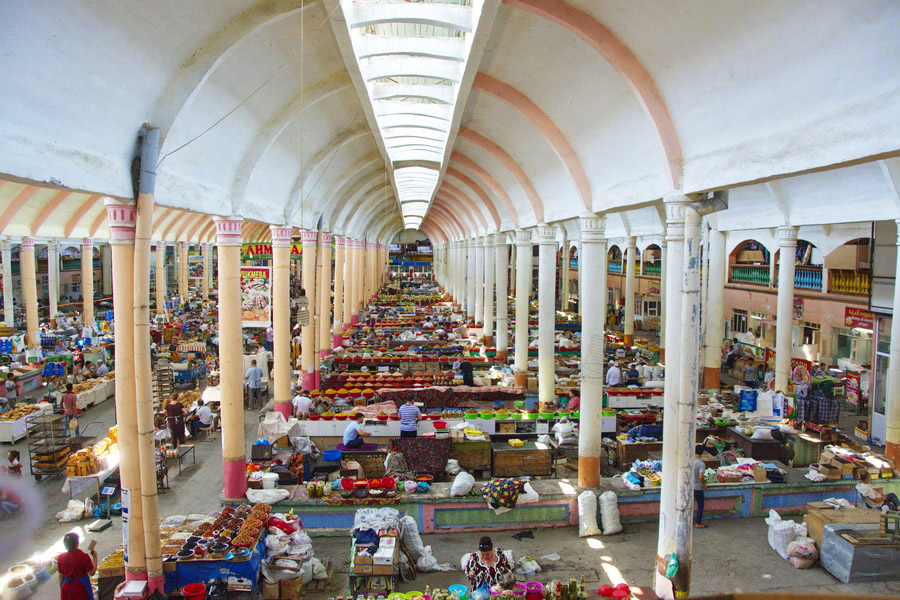Pančšanbe market: Tajikistan's living history
After a recent renovation, it attracts thousands of tourists from all over the world to Khudžand, the country's second largest city. It testifies not only to local traditions, but is also a landmark of a still faltering economy that wants to find its way back to regional and global trade.
Dushanbe (AsiaNews) - One of Tajikistan's main attractions, which after a recent renovation attracts thousands of tourists from all over the world, is the Pančšanbe market, one of the largest in Central Asia. Its history dates back to antiquity, and it is the most impressive place in Khudžand, the second largest city in the country after Dushanbe. The market is indivisibly linked to the Syrdarja River, as everything sold there is produced on its banks.
The Syrdarja is the main river in the whole of Central Asia, and flows through four countries: Kyrgyzstan, Tajikistan, Uzbekistan and Kazakhstan, finally emptying into the Aral Sea. Its destiny conditions the lives and mutual relations of the peoples who border it, and Azattyk journalist Petr Trotsenko has travelled along it to tell how it looks today through the stories of simple people, fishermen, traders, farmers, and also by consulting the experts who deal with the problems of its watershed, looking for possible solutions for the benefit of all.
The market has always been the main meeting place for the people of Khudžand, where, in addition to shopping, people come together to eat plov, the national dish of rice, carrots and meat, to listen to the news while enjoying sweets and drinking tea. In the past, the river flowed right next to the market, making it even easier to trade, but now it has changed its course away from the stalls. After all, the city of Khudžand is itself one of the oldest in the entire Central Asian region, dating back some 2,500 years, and the river connected the Fergana valley to one of the Silk Road capitals, the city of Bukhara. Bazaars were formed at all the crossroads of the roads, and then concentrated on the main days in Pančšanbe, which in Tajik means ‘Thursday’, the big market day.
The other towns in Tajikistan are also linked to trading days: Dušanbe means ‘Monday’, Čoršanbe is ‘Wednesday’, Šanbe ‘Saturday’ and Jakšanbe ‘Sunday’. The large pavilion covering the Pančšanbe market was erected in Soviet times in 1964, as the main covered market in Central Asia, but retaining the appearance of the old bazaars. Here one can buy the freshest and cheapest produce, there are many vendors and great competition between them, some of them from neighbouring Uzbekistan, while the Kyrgyz disappeared with the border conflicts. Nearby is also the so-called Afgan-bazar, where Tajiks from Afghanistan traditionally trade, but they too stopped coming after the return of the Taliban.
Next to Pančšanbe stands the mausoleum of Šaikh Muslukhuddin, poet and governor of Khudžand in the 12th century, with a large mosque next to it where people pray all together before the market opens in the evening, when farmers arrive to sell fruit, vegetables, meat and dairy products until the next morning. In the evening, plov is also prepared for everyone in two large pots, using at least 100 kilos of rice, in the largest Central Asian street food. On feast days, the square fills up for prayer, especially on the Kurban-Ajta solemnity, when several thousand people gather, who also invade the surrounding streets.
Today, the Pančšanbe market seeks to revive itself further, not only as a testimony to local folklore and traditions, but also as a point of reference for an economy that is still very shaky in Tajikistan, but which wants to find its way back to an ever-evolving regional and global trade, a market of the poor that is transformed into the rebirth of the many peoples who travel the rivers of Central Asia.







.png)










